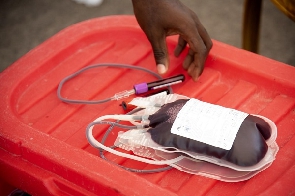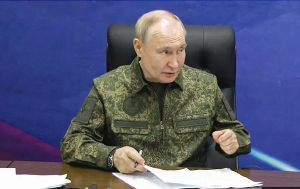Doris Kusima Baiden, Medical Laboratory Scientist in Charge of the Blood Bank at the International Maritime Hospital (IMaH) has advised Ghanaians to disregard myths and negative perceptions about blood donations
She said the myths and negative perception they were unfounded and unscientific.
She explained that some individuals believe that the blood donated is used for money rituals and other illegal activities, which has put fear into some people, and urged that it be disregarded.
She said, “it is not possible to use the donated blood for rituals because once the blood is taken, chemical components are added to it, changing its raw format, and it is sent to a blood bank for safekeeping.”.
Baiden, stated when addressing issues related to blood donation at the weekly “Your Health! Our Collective Responsibility! A Ghana News Agency Tema Regional Office initiative aimed at promoting health-related communication and providing a platform for health information dissemination to influence personal health choices through improved health literacy
Baiden supported by Robert Tetteh Djimajer, also a IMaH Medical Laboratory Scientist, again added that people get scared and have a lot of funny thoughts about the donation exercise because of what they have heard from friends and others.
She revealed that blood donation is an opportunity for individuals to know their blood groups, health status, and any other underlying diseases, stating that there are some medical tests done before one can donate blood.
Baiden noted that after the donation, the donors are advised not to engage in any vigorous activities, yet some do not listen, “since they feel normal and decide to engage in their usual activities situation, which sometimes causes such persons to collapse, scaring others from donating”.
She urged the public to take those bold steps to donate blood and save a life or two, and she also encouraged them to be truthful in answering questions to the health officer.
Djimajer also added that, although some religions and beliefs about blood donation are difficult to erase from some people’s minds, there are others who have received blood from blood banks without any religious harm.
He noted that counseling is also rendered to individuals who voluntarily want to donate but are scared because of a myth or a belief.
“Because they have heard so many things from people about blood donations, we often have conversations with them and counsel them so that they can free their minds of these myths and beliefs”, he stated.
He appealed to the public to take a bold step, irrespective of blood group, and go the extra mile for a friend, relative, or loved one to donate blood and save a life.
Health News of Wednesday, 28 June 2023
Source: GNA













